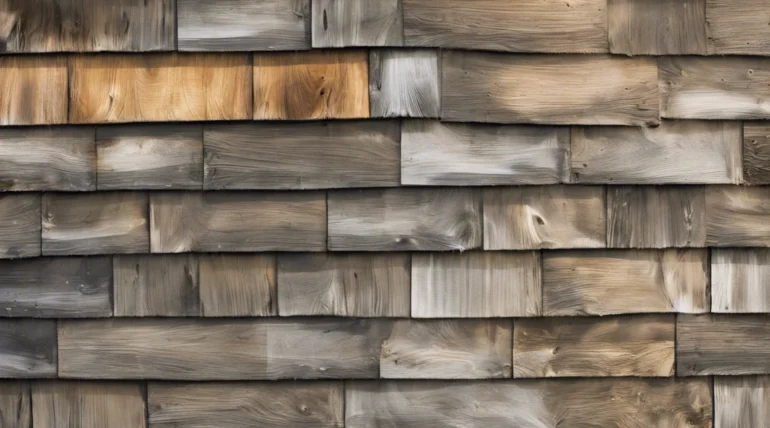
Power washing is a popular method for cleaning exterior surfaces, known for its ability to blast away dirt, grime, and mildew with high-pressure water. But many homeowners wonder if power washing is safe for every surface around their home. While power washing can be incredibly effective, it’s important to know which surfaces can handle the pressure and which ones may require a more delicate approach. Let’s debunk some common myths about power washing and help you understand how to safely clean your home’s exterior.
Myth 1: Power Washing Can Be Used on Any Surface
One of the most common myths is that power washing is safe for any surface. While power washing is excellent for durable materials like concrete and brick, it’s not suitable for every surface. Delicate materials, such as wood siding, painted surfaces, or shingles, can be damaged by the high-pressure stream of water. Too much pressure can strip paint, cause splintering in wood, and even crack certain materials.
For surfaces that require a gentler touch, soft washing is often the better solution. Soft washing uses a lower pressure combined with cleaning solutions to remove dirt and mildew without the risk of damage. Knowing when to use power washing versus soft washing is key to maintaining your home’s exterior without causing harm.
Myth 2: More Pressure Equals Better Cleaning
Many people believe that the higher the pressure, the cleaner the surface will be. However, this isn’t always the case. While high pressure is great for tough surfaces like driveways and sidewalks, it can be overkill for more delicate areas. Using too much pressure can gouge wood, crack siding, and even damage concrete if it’s already worn or aged.
It’s not just about power—it’s about technique. Professional power washers adjust the pressure settings based on the surface they’re cleaning to ensure that no damage occurs. They also use different nozzles and angles to target specific areas, giving you the best results without risking harm to your property.
Myth 3: Power Washing Doesn’t Require Special Skills
Another common misconception is that power washing is a simple DIY task anyone can handle. However, power washing requires skill and expertise to be done safely and effectively. Using the wrong pressure setting or technique can not only damage your property but also lead to injury. High-pressure water can cut through skin, and improper handling of the equipment can result in accidents.
Professionals are trained to use the right amount of pressure for each surface, and they know how to navigate tricky areas like roofs, corners, and tight spaces. They also use specialized equipment that can control the water pressure more accurately than consumer-grade models. Hiring a professional for your power washing needs ensures the job is done correctly, safely, and with the best results.
Myth 4: Power Washing Isn’t Safe for Painted Surfaces
While it’s true that power washing can damage painted surfaces if not done properly, it doesn’t mean all painted surfaces are off-limits. The key is in using the right pressure and technique. Lower pressure combined with the right nozzle can effectively clean painted surfaces like decks and fences without stripping the paint.
In fact, power washing is often used as a preparatory step for repainting, as it helps remove loose paint, dirt, and debris, providing a clean surface for the new coat of paint to adhere to. The trick is in balancing the pressure so that it’s strong enough to clean but gentle enough to preserve the paint.
Myth 5: Power Washing Is Harmful to the Environment
There’s a misconception that power washing wastes water or spreads harmful chemicals into the environment. However, when done properly, power washing can be an eco-friendly way to clean your home’s exterior. In many cases, power washing requires little to no chemical cleaners and uses much less water than a typical garden hose would over the same amount of time.
Professionals often use environmentally friendly cleaning solutions that break down dirt and grime without harming the environment. Additionally, using a power washer’s high pressure means that less water is needed to achieve a thorough clean. So, not only is power washing efficient, but it can also be more sustainable than traditional cleaning methods.
When Power Washing Is the Right Choice
Power washing is an incredibly effective cleaning method for many surfaces, including:
- Concrete driveways and sidewalks: Perfect for removing oil stains, dirt, and grime.
- Brick and stone walls: Safely cleans without damaging mortar or structure.
- Vinyl siding: Effective for removing mildew, mold, and dirt buildup.
- Wood decks: Can be cleaned safely with the right pressure settings.
However, surfaces like wood siding, painted surfaces, asphalt roofing, and delicate outdoor furniture often benefit from soft washing instead of traditional power washing. A professional can help assess your property and determine the best cleaning method for each area.
Leave It to the Pros
Power washing is a great tool for maintaining your home’s appearance and longevity, but it’s important to know when and where it’s safe to use. Hiring a professional not only ensures that each surface is cleaned with the proper technique, but it also gives you peace of mind that no damage will occur. At Scrub Dub, we specialize in both power washing and soft washing, using the right approach to get your home looking its best while keeping it safe.
If you’re unsure whether power washing is right for your home, contact us today for a consultation. We’ll help you determine the safest, most effective way to clean your property and maintain its beauty for years to come.
